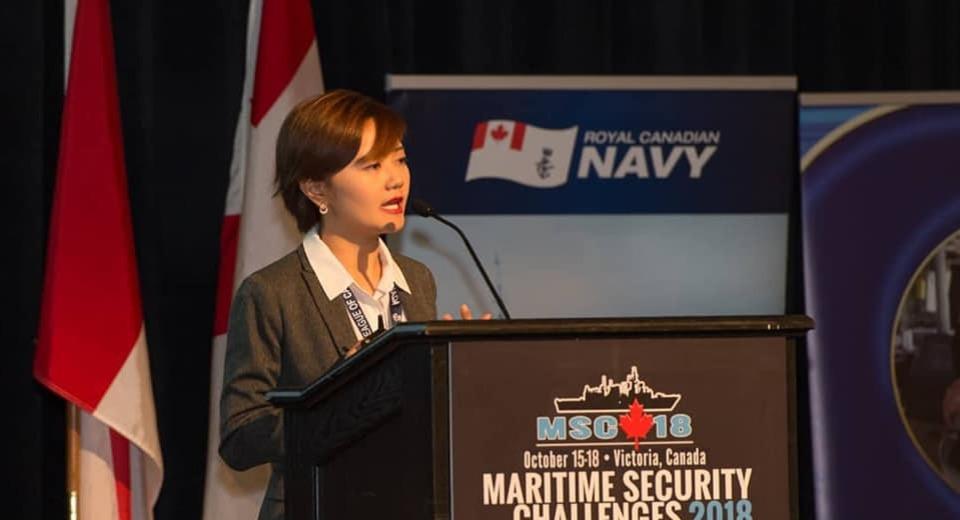For the past few decades, Beijing has relentlessly exported its developmental models and ideas throughout Southeast Asia. Such development assistance has given China the appearance of a responsible rising power. But the diffusion of Chinese developmentalism has the potential to pose challenges to the international order established after World War II.
Among the targets of Chinese developmental diffusion, Southeast Asia has long been regarded as a region of primary importance. Chinese engagement benefits from the multilateral security architecture of the Association of Southeast Asian Nations. Southeast Asia also is considered an easier case for China to promulgate its development model through the transmission of technological standards, ideas, and investment to the region owing to regional proximity and ethnic ties.
The Chinese way of conceiving of and implementing development projects carries some merit. China itself has successfully developed a world-class infrastructure system internally and, in some cases, expedited the development of foreign countries overseas. For this reason, Beijing’s economic initiatives such as the Belt and Road Initiative are popular in Southeast Asia. Nonetheless, China’s oft-touted principle that “development is the key to all problems” faces some challenges. Public scepticism over Chinese-led investment projects has erupted in some Southeast Asian states, even those that are typically considered to be politically close with or economically dependent on Beijing. The challenges posed to China’s developmental policy diffusion are not only unique to the socio-political conditions of each host country, but also related to the characteristics of the actors responsible for the implementation of Chinese economic statecraft.
Through my work with Carnegie China, I plan to investigate to what extent and how China’s infrastructural developmental policies encounter success and failure across borders. In the process of developmental diffusion, Chinese state businesses play a frontline role in imparting knowledge to local governing actors. This role requires Chinese state businesses to navigate the discrepancies between China’s domestic environment and local conditions overseas. Specifically, state-business actors must have competency in framing, articulating, and implementing Chinese solutions to local conditions. They must have strong negotiation skills and concrete plans to convince local agencies of the benefits of their development offerings. In each case, Chinese state firms display a degree of variability in their ability to harness the skills necessary to promote Chinese-style development.
China is a theoretically and empirically important case for illustrating how developmental policies and practices can be translated into political influence. China itself has a remarkable track record of domestic development, using the tools and models adapted from the outside world, in addition to inventing its own methods. Based on that, China’s growing role as the provider of commercial infrastructure and development assistance in the Global South has invited huge debates on the impacts of transplanting the “China Model”.
In my work with Carnegie China, I will challenge the conventional theory that assumes great powers are more capable of knowledge and idea diffusion than small powers. My research will show that idea diffusion often is a dynamic, two-way interactive process, and even small powers can impose their own development ideas and practices on actors from stronger powers. In other words, small powers have the ability to reject or revise the developmental plans of great powers to suit their own local conditions and interests. Many developing Southeast Asian countries wish to express that they are not just passive idea-takers but can also make and reengineer development ideas, including those from China.
My research will demonstrate that China has not always effectively diffused its infrastructural developmental policies. Arguably, even Chinese officials have begun to realize that China’s developmental practices may not be entirely applicable to other countries in the long run. Deploying economic influence requires intimate knowledge of the political and economic landscape specific to the target country. Such political capital and knowledge is not easily transferable and its content can be lost across borders. Countries that seek political influence through economic policy need to carefully consider the sociopolitical conditions of the host country. By discerning the details of local interactions between Chinese business actors and their host countries, I seek to capture the more nuanced and complex realities of cross-border infrastructure development in Southeast Asia.
The study of China’s development diffusion is also significant in the context of growing Sino-American competition in Southeast Asia and beyond. In response to China’s ever-growing economic influence, the United States has launched a variety of its own economic initiatives such as the Indo-Pacific Economic Framework, which China considers to be an “economic NATO.” The difference between the American and Chinese approaches to developmental public goods has become a major source of friction leading to competing claims of superiority. My research hopes to help stakeholders and the public understand the impact of policy diffusion, especially the impact on prosperity, equality and sustainability in host countries. This research is equally critical to understand how Southeast Asian countries can navigate the economic interdependencies and vulnerabilities resulting from regionalization, globalization, and geoeconomic competition.
